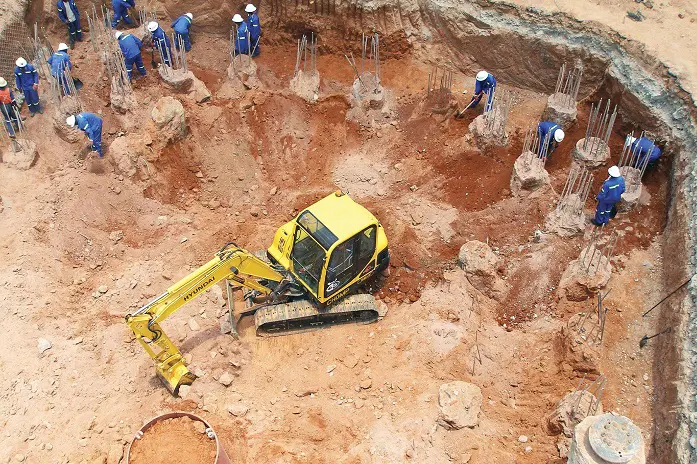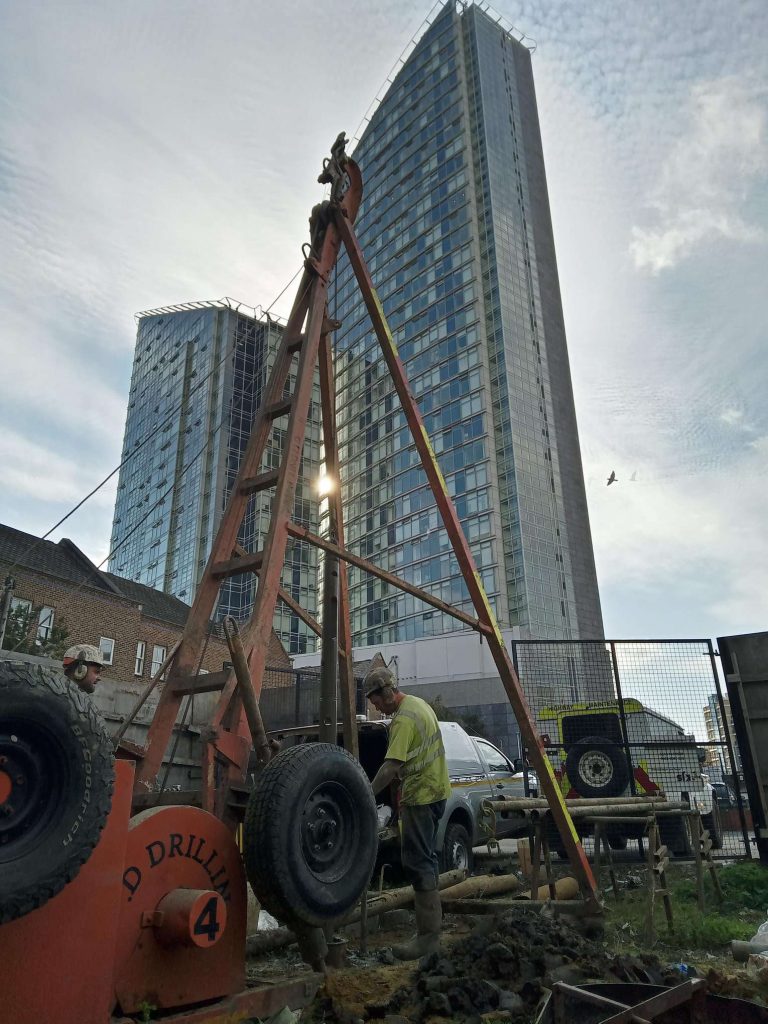Necessary High Qualities of Effective Civil Consulting Engineers
Necessary High Qualities of Effective Civil Consulting Engineers
Blog Article
A Thorough Summary of the Secret Duties of Geotechnical Engineers in Site Characterization and Ground Enhancement Techniques for Design Solutions
Geotechnical designers are important to the effective implementation of engineering jobs, charged with the vital responsibilities of website characterization and the application of ground renovation strategies. Their job includes a detailed evaluation of subsurface problems, using numerous screening methods to determine soil and rock properties.
Role of Geotechnical Engineers
Geotechnical engineers play a crucial function in the style and construction of facilities by assessing the habits of dirt and rock under the surface - geo tech engineering. Their duties include evaluating subsurface problems to educate design choices that make sure structural security and security. By conducting comprehensive evaluations of dirt buildings, consisting of shear stamina, permeability, and compressibility, geotechnical designers give vital information that influences the selection of suitable building materials and techniques
In enhancement to assessing soil auto mechanics, geotechnical designers are entrusted with determining potential dangers such as landslides, sinkholes, and ground negotiations. Their knowledge aids mitigate dangers linked with these geotechnical phenomena, thus securing both the atmosphere and public safety and security. They also work together closely with other engineering disciplines, guaranteeing that geotechnical considerations are incorporated right into general job style.
In addition, geotechnical designers participate in the evaluation of existing structures, giving referrals for retrofitting and repairs when required. Their thorough understanding of soil-structure communication is essential for the development of sustainable infrastructure services. In general, the function of geotechnical designers is indispensable to the successful awareness of building and construction tasks, guaranteeing they are secure, resilient, and certified with regulative standards.

Site Characterization Procedures
Efficient site characterization procedures are necessary for understanding the subsurface conditions that affect project style and execution. Geotechnical designers employ an organized method to collect, assess, and translate information concerning rock, soil, and groundwater characteristics. This process begins with a thorough evaluation of existing literature and archaeological site data, supplying insights right into previous site problems and prospective difficulties.

Information analysis adheres to fieldwork, where designers make use of geostatistical techniques to translate searchings for and produce geological versions. Through persistent website characterization, geotechnical designers lay the groundwork for effective project implementation, lessening unforeseen complications and enhancing source allocation.
Dirt and Rock Screening Methods
While recognizing subsurface problems is important, the option of suitable dirt and rock screening techniques is equally crucial for exact analysis and layout. Geotechnical designers employ a range of screening strategies to evaluate the mechanical and physical residential or commercial properties of soil and rock products.
Lab examinations, such as Atterberg restrictions, grain size analysis, and unconfined compressive stamina examinations, offer crucial data on dirt actions under various dampness problems and packing scenarios. These tests assist determine soil classification and forecast settlement or shear toughness characteristics critical for foundation design.
In-situ screening techniques, including Standard Penetration Tests (SPT), Cone Penetration Examinations (CPT), and pressure meter tests, permit engineers to gather information straight from the ground. These methods provide useful understandings into the dirt's thickness, consistency, and stratification without the demand for considerable tasting.
Rock testing typically entails look at these guys core tasting and research laboratory analysis to examine buildings like uniaxial compressive stamina and rock top quality designation (RQD) Together, these dirt and rock screening techniques enable geotechnical engineers to make informed decisions pertaining to site-specific challenges, ensuring the safety and security of design options.
Ground Enhancement Strategies
Ground improvement techniques are necessary for enhancing the design properties of dirt, therefore boosting its load-bearing capacity and minimizing negotiation. These approaches are vital in resolving difficulties provided by bothersome or weak soils, which can dramatically affect the security and longevity of frameworks.
Numerous ground enhancement strategies are employed, including compaction, grouting, and dirt stablizing. Compaction entails enhancing the thickness of soil with mechanical methods, which improves its shear stamina and lowers compressibility. Grouting, on the other hand, involves injecting a liquid product into the ground to fill up spaces and enhance dirt cohesion. This strategy is especially effective for dealing with loose sands or fractured rock.
Soil stablizing encompasses a range of methods, from chemical ingredients to mechanical therapies, targeted at enhancing the soil's resistance to erosion and contortion. Methods such as lime stabilization or concrete blending modify the residential or commercial properties of the dirt at a particle level, enhancing its overall performance.
Relevance of Geotechnical Analyses
Geotechnical assessments play an essential duty in the planning and layout of engineering tasks, as they give vital info about the subsurface problems. Recognizing soil properties, rock developments, groundwater degrees, and prospective geohazards is important for guaranteeing the stability and safety of structures. These evaluations enable designers to make educated decisions pertaining to website choice, style specifications, and building techniques.
The value of geotechnical assessments expands beyond preliminary project stages; they contribute in danger administration and cost performance. By determining possible issues early, such as dirt settlement, incline instability, or extreme groundwater, engineers can devise ideal reduction methods, reducing the likelihood of costly hold-ups and structural failures. In addition, these assessments support conformity with regulatory needs and enhance the sustainability of engineering techniques.

Final Thought
Finally, geotechnical engineers are vital to making certain the security and security of engineering projects via thorough site characterization and ground enhancement strategies. geotech engineer. Their methodical approach to examining subsurface conditions, incorporated with their referrals for effective ground alteration, considerably boosts soil properties and load-bearing ability. The experience of geotechnical engineers not only promotes informed job preparation but additionally makes sure conformity with guidelines and promotes effective communication among stakeholders, inevitably adding to successful engineering outcomes
Geotechnical designers play a crucial function in the design and building of infrastructure by assessing the behavior of soil and rock below the surface. By carrying out thorough analyses of soil residential properties, including shear permeability, toughness, and compressibility, geotechnical engineers provide important information that influences the choice of proper building and construction materials and techniques.
In addition to assessing dirt auto mechanics, geotechnical designers are tasked with recognizing prospective dangers such as landslides, sinkholes, and ground negotiations. Geotechnical engineers use a systematic technique to collect, evaluate, and translate data concerning rock, groundwater, and dirt characteristics. By check this recognizing potential issues early, such as soil settlement, incline instability, or extreme groundwater, engineers can develop proper reduction approaches, decreasing the probability of structural failures and expensive delays.
Report this page